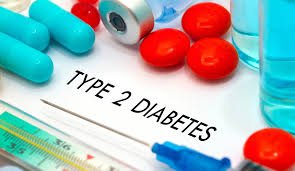The Prevalence Of Type 2 Diabetes Dramatically Increased In The Youngsters Of The Age Group 20-40

Pune: Diabetes is known as a metabolic, endocrine, and non-communicable disease that is a ‘silent killer’. Many youngsters belonging to the age group of 20-40 have been detected with diabetes owing to insulin resistance. Thus, increased levels of sugar in the body will lead to diabetes, and not managing it at the right time will invite serious complications like even sexual dysfunction. Hence, it is imperative to kick-off that sedentary lifestyle and eat healthily and exercise daily.
Type 2 diabetes can be described as a condition wherein one’s cells are unable to use blood sugar in an efficient manner to meet the body's needs. The symptoms of type 2 diabetes may include frequent urination, tiredness, frequent thirst, and weight gain or loss. Nowadays, many youngsters are falling prey to type 2 diabetes owing to a sedentary lifestyle. Being overweight, obesity, lack of exercise, stress, eating a high-calorie diet, and having a family history can increase your risk of getting diabetes.
Dr. Sanjay Nagarkar, Diabetologist , Apollo Spectra Hospital, Pune, highlighted, “Insulin resistance in young people can lead to diabetes as they will have to make more insulin than what is required on the normal basis in order to regulate the blood sugar levels. Those who are obese or overweight have insulin resistance. This insulin resistance will invite type 2 diabetes as the pancreas fails to make enough insulin and that is how your blood sugar level will increase. Young adults in the age group 20-40 can have an aggressive form of the condition impacting their quality of life.”
Dr. Nisha Pansare, Fertility Consultant, Nova IVF Fertility, Pune, “Cardiovascular diseases, kidney, eye, foot and nerve damage, skin conditions and even sexual dysfunction may occur owing to diabetes. Those males with diabetes tend to have low testosterone levels and can lead to reduced fertility, low sperm count, erectile dysfunction, and even loss of sex drive. Thus, getting screened on a regular basis for diabetes is essential.”
Dr Swati Gaikwad, Consultant Obstetrician & Gynaecologist, Motherhood Hospital, Kharadi, Pune, said, “Poor understanding about the condition has created fear and myths in people. It is essential for a doctor to educate patients about diabetes and allow them to do their real-world activities with ease. Many young women struggle with diabetes and are in a dilemma whether to disclose that they have this condition. This also leads to the development of ketoacidosis (excess blood acids called ketones) and may require hospital admission. There is a social stigma regarding diabetes and those having it are blamed and shamed. Diabetes is linked to low fertility, PCOD, and other autoimmune diseases. Babies of the mothers who are diabetics may have birth defects and even heart and digestive health issues, have jaundice or even premature birth can occur. Thus, it is the need of the hour to control this condition.”
Dietary changes can help manage diabetes. Cut down on chapatti, processed, fried, spicy food, sweets, and sugary drinks. Maintain an optimum weight, exercise daily, have a low-salt diet, and eat fresh fruits and vegetables. Make apple cider vinegar a part of your diet to enhance your insulin sensitivity.















































